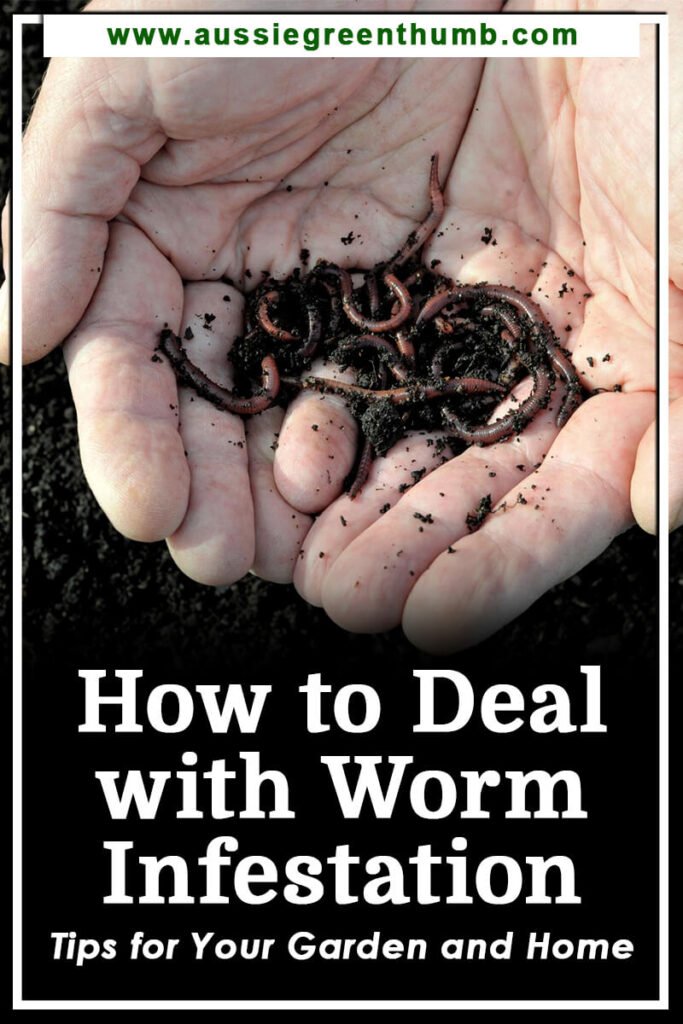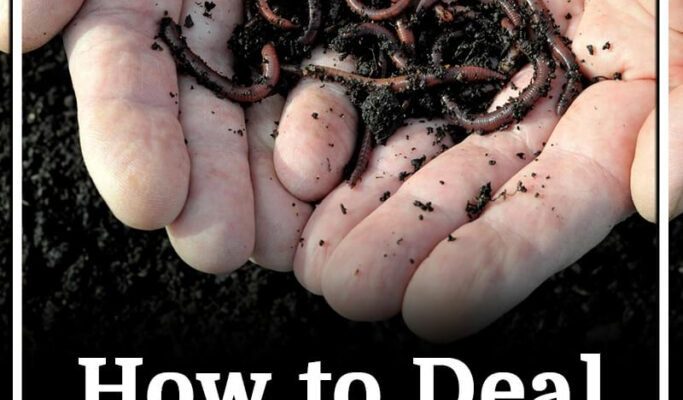
Honestly, it’s all about creating a healthy environment for your plants. Just like your home needs a bit of tidying up from time to time, so does your garden. This doesn’t just mean pulling weeds or trimming plants. It involves looking at the bigger picture and considering how your gardening practices affect the overall health of your garden ecosystem. Let’s dive deeper into why keeping your garden clean is key to avoiding those pesky worm infestations.
The Importance of Garden Sanitation
You might be wondering why garden sanitation is such a big deal. Well, think of your garden as a living community. Just like you want your neighborhood to be clean and safe, a tidy garden promotes healthy growth. Proper sanitation helps reduce the chance of diseases and pests, including worms. Worms, while they can be beneficial in some cases, can become a serious problem if their population gets out of control.
Sanitation practices create a healthy environment that prevents the spread of diseases among your plants. For example, removing dead plants or weeds can significantly reduce the likelihood of pests finding a home in your garden. Plus, it keeps your plants happy and healthy, allowing them to grow without the stress of competing for resources or fighting off diseases.
Regular cleaning tasks may seem tedious, but they can save you headaches down the road. Imagine heading outside to find healthy plants instead of a battleground of worms and pests. A little work now can lead to a flourishing garden later.
Regularly Inspect Your Garden
The first step in effective garden sanitation is regular inspection. Much like keeping an eye on your home for any leaks or signs of trouble, your garden needs the same attention. Walk through your garden at least once a week to check for any signs of worm infestations or other pests.
When inspecting, look for signs of damage on your plants, like holes in leaves or droppings on the soil. These are often tell-tale signs of unwanted guests. If you find any worms, it’s essential to identify the type. Some worms might actually be beneficial, like earthworms that help aerate your soil. Others, like cutworms or apple maggots, can cause significant harm.
If you notice any suspicious activity, it’s time to take action. You might want to remove infested plants or use organic pest control methods to manage the problem. Regular inspections help catch issues early before they escalate into major infestations.
Implement Proper Waste Management
Waste management is a crucial aspect of garden sanitation. It’s not just about tossing your kitchen scraps in the compost bin; it’s about how you handle all the green waste your garden produces. Leaving clippings or dead plants lying around can attract pests, including worms, which may use these materials as breeding grounds.
After trimming your plants or cleaning up fallen leaves, it’s best to remove these materials promptly. You can compost healthy plant debris, but avoid adding any infested materials to your compost heap. Instead, toss those directly into the trash to prevent any unwanted guests from coming along for the ride.
Also, consider creating a designated compost area that’s overseen. By keeping your compost heap tidy and aerated, you can manage the thermophilic process that helps break down materials efficiently. This controlled environment can help minimize the chances of worms and pests from taking hold.
Practice Crop Rotation
Crop rotation is a fantastic strategy to prevent worm infestations and promote healthy soil. Just as you wouldn’t want to eat the same meal every day, plants benefit from variety too. By changing where you plant certain types of crops each season, you can disrupt the lifecycle of pests, including worms.
For instance, if you grew tomatoes in one spot this year, consider planting beans or carrots there next season. This change helps prevent specific pests from establishing a permanent home in your garden. Some worms are particularly fond of certain plants. By rotating your crops, you’re essentially making it harder for them to find a reliable food source.
Additionally, crop rotation can improve soil health. Different plants contribute varying nutrients back to the soil. This keeps your garden well-balanced, promoting healthier plants that are better equipped to fend off pests.
Use Mulching Techniques
Mulching is another effective way to maintain sanitation in your garden. Adding a layer of mulch—like shredded leaves, straw, or wood chips—serves multiple purposes. It suppresses weeds, retains moisture, and most importantly, prevents some pests, including worms, from making a home near your plants.
By blocking light and creating a barrier, mulch can deter some pests. However, be cautious! If mulch becomes wet and starts to decompose, it can actually attract unwanted worms. Make sure to turn or replace the mulch regularly to keep it fresh and effective.
You might also want to consider using organic mulch materials. These not only benefit your plants as they break down but also encourage beneficial organisms in the soil, which help maintain a healthy garden ecosystem.
Maintain Healthy Soil Practices
Healthy soil is the backbone of any successful garden. Focus on keeping your soil rich and balanced to support your plants’ growth. This means testing your soil regularly and amending it as needed with organic materials. Nutrient-rich soil produces stronger plants, which can better withstand pest invasions.
When maintaining your soil, avoid compacting it by walking on it too much. Think of your soil as a sponge. If it’s compacted, it can’t absorb water and nutrients effectively. Instead, use paths or stepping stones to minimize soil disturbance.
Additionally, consider integrating natural fertilizers and microbial inoculants. These can enhance soil health and create an environment that discourages harmful pests like excessive worms. By fostering a thriving soil ecosystem, you’re not just preventing infestations—you’re promoting a lush, vibrant garden.
Final Thoughts on Garden Sanitation
Keeping your garden clean and well-maintained is key to preventing worm infestations. By regularly inspecting your garden, managing waste properly, rotating your crops, using mulch, and maintaining healthy soil, you can create a space where your plants not only survive but thrive.
Remember, gardening is a journey, not a race. Each little step you take toward better sanitation makes a difference. So grab your gloves, put on your gardening hat, and get ready to nurture a garden that flourishes in harmony with nature. With a little effort and awareness, your garden can be a beautiful, worm-free oasis that fills your days with joy.

